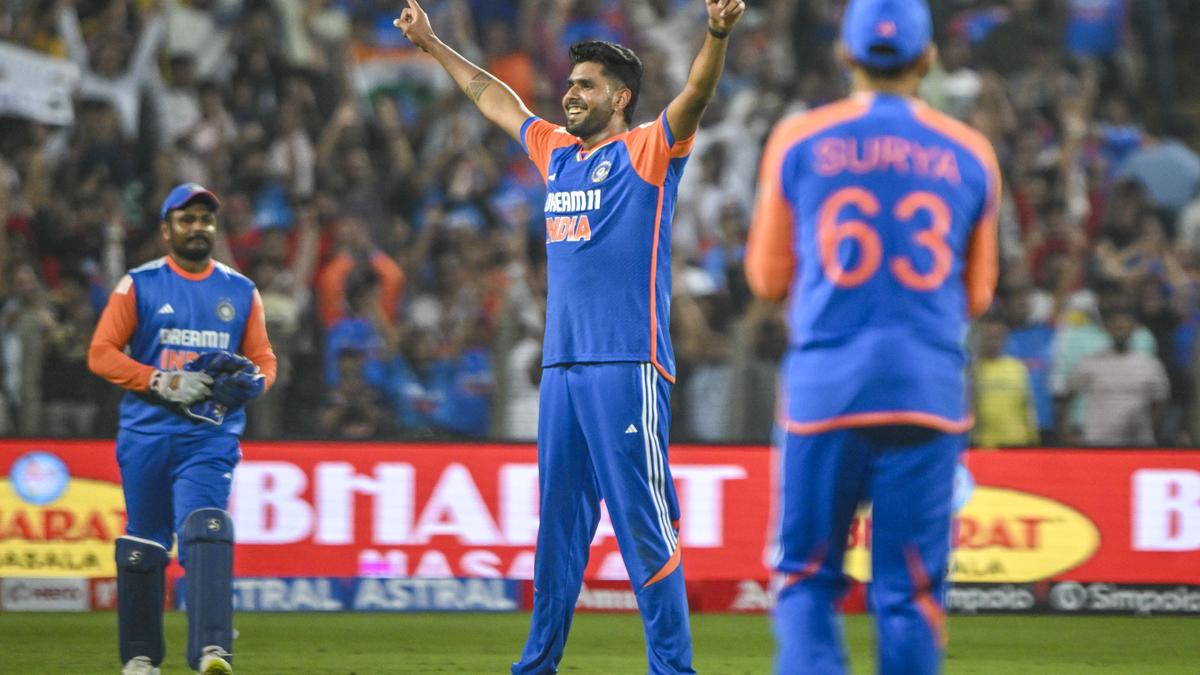Harshit’s triple strikes went a long way in India clinching the series with a game to spare.
| Photo Credit: EMMANUAL YOGINI
Concussion substitute or Impact Player? That has been the debate ever since Harshit Rana was allowed as a concussion sub for Shivam Dube during the fourth T20I between India and England at the Maharashtra Cricket Association Stadium on the outskirts of Pune on Friday night.
A combination of Dube’s 53 with the willow and Rana’s three wickets on debut in the latter half of England’s chase was instrumental in India winning the match by 15 runs and keeping its record unbeaten run in bilateral T20I series at home intact with a game to spare.
No doubt the concussion sub after Dube took a blow on his helmet before being run out in the last over wasn’t the sole factor in England falling short in a tense chase. But the fact that Rana — a pacer who is no mug with the bat — was allowed to replace Dube — a batting all-rounder whose medium pace has seldom been utilised by the Men in Blue over the last 12 months — has raised eyebrows over match referee Javagal Srinath’s decision.
In case of a concussion sub, the match referee is the sole arbitrator and is supposed to check whether the replacement is “like for like” and it does not hand excessive advantage to the side. No wonder that England captain Jos Buttler stressed that his group “disagreed” with the ruling.
Buttler even joked that he would also perhaps name his 12 at the toss on Sunday night.
No doubt Srinath could have possibly suggested Ramandeep Singh as a like-for-like replacement instead of approving Rana as a concussion sub. But the fact that the rule was introduced in 2019 in order to promote player safety means the match referees seldom reject a proposed replacement.
It was neither the first time nor will it be the last of a team having an undue advantage with a concussion sub. Yuzvendra Chahal had replaced Ravindra Jadeja in a T20I against Australia in December, 2020, after the all-rounder’s quick-fire 44 not out had bailed India out of trouble. The leg-spinner’s 3/25 helped India win the match by 11 runs.
Perhaps it’s time the International Cricket Council ensured stringent application and avoided misuse of the rule.
Published – February 01, 2025 07:19 pm IST
Content Source: www.thehindu.com

